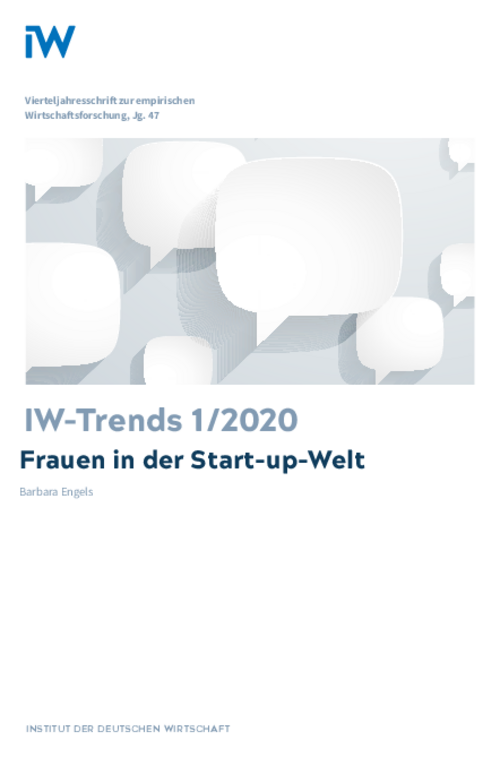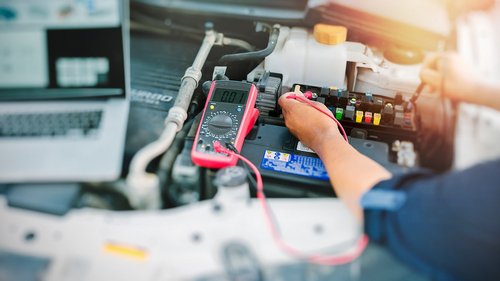Women are underrepresented in the start-up world. Since 2008, only 4 per cent of start-ups in Germany have been founded by women. In contrast, the proportion of companies founded by women that are not considered start-ups is comparatively high at around 40 per cent.

Women in the Start-up World: Why So Few Set Up Their Own Start-ups
IW-Trends

Women are underrepresented in the start-up world. Since 2008, only 4 per cent of start-ups in Germany have been founded by women. In contrast, the proportion of companies founded by women that are not considered start-ups is comparatively high at around 40 per cent.
In search of the reasons for this discrepancy, the present study examines how young people perceive entrepreneurship and the idea of setting up their own company. It highlights the differences in how the two sexes assess their own abilities and self-efficacy. The results of this survey of 2,221 girls and boys show that although girls have a very positive image of entrepreneurship, many of them, and a significantly larger proportion of them than of the boys, cannot imagine starting a business of their own. This can at least partly be explained by how girls assess their creativity and flexibility, two skills that are particularly important for launching a start-up. The reason why girls are less willing to found start-ups and why women are correspondingly less active in the start-up world is thus not any lack of entrepreneurial spirit per se. Rather, if the proportion of start-ups by women is to be increased, there is a need to bolster their self-confidence, especially in the two non-cognitive skills of creativity and flexibility. Potential measures for correcting this imbalance include mentoring and the appropriate upbringing and training from an early age.

Barbara Engels: Frauen in der Start-up-Welt – Ursachen niedriger Gründungsquoten
IW-Trends

More on the topic

How SMEs and start-ups cooperate in the automotive industry
Cooperation between established companies and start-ups offers expanded opportunities to innovate and drive the digitalization of the economy.
IW
Do Family Businesses Shape Political Voting Behaviour in Germany?
In recent years family businesses have become an object of research in their own right. Indeed, it has been shown that, far from developing less dynamically than other firms, as once assumed, family businesses actually outperform their peers.
IW